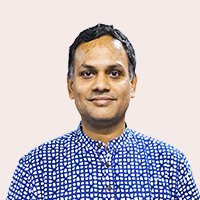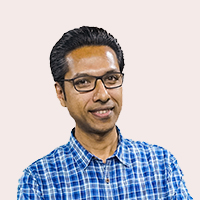About IIT Madras
Indian Institute of Technology Madras is one of the foremost institutes of national importance for higher technical education and research.
In 1956, the German Government offered technical assistance in establishing an institute of higher education in engineering in India. The first Indo-German agreement in Bonn, West Germany for the establishment of the Indian Institute of Technology at Madras was signed in 1959.
The Institute was formally inaugurated in 1959 by Prof. Humayun Kabir, Union Minister for Scientific Research and Cultural Affairs. The IIT system has twenty three Institutes of Technology. The first of these to be instituted are at Kharagpur (estb. 1951), Mumbai (estb. 1958), Chennai (estb. 1959), Kanpur (estb. 1959), Delhi (estb. 1961), Guwahati (estb. 1994) and Roorkee (estb. 1847, joined IITs in 2001).
The Institute has sixteen academic departments and several advanced research centres in various disciplines of engineering and pure sciences. A faculty of international repute, a brilliant student community, excellent technical & supporting staff and an effective administration have all contributed to the pre-eminent status of IIT Madras. The campus is located in the city of Chennai, previously known as Madras. Chennai is the state capital of Tamil Nadu, a southern state in India.
We have been ranked number 1 Engineering Institute for the past 6 years and we have been ranked number 1 Overall for the past 2 years by NIRF.
IITM’s Experience in Online Education
IITM is well-equipped to provide online programs, which has been proven with its experience in the NPTEL and BS in Data Science programs.
National Program on Technology Enhanced Learning (NPTEL)
Furthermore, IITM began the NPTEL program, the country’s first online content portal as an inter-IIT consortium project in 2003 and nptel.ac.in is one of the largest online course repository in the world for engineering content. In 2014, NPTEL started offering courses for certification and currently more than 1300 courses are offered for certification per year, with more than 40 lakh enrollments and 8 lakh students registering for exams.
NPTEL also manages the national MOOCs portal - swayam.gov.in as well as the network of more than 5300 SWAYAM local chapter colleges.
IIT Madras’ BS in Data Science and Applications
Based on the experience gained from NPTEL, IIT Madras launched the 4 year BS degree program in Data Science and Applications study.iitm.ac.in/ds. This program has a non-JEE qualifier based entry into the program and is open to learners from all streams and backgrounds, requiring nothing more than English and Maths at std X and completion of std XII. More than 16000 students study in the program, which is now in its third year of offering.
The program can be paced by the learner who can select the number of courses they wish to register every term and there are multiple exits such as the Foundation level certificate, Diploma in programming, Diploma in data Science, BSc in programming and Data Science and finally the BS degree. Based on the number of credits accrued, the exits are available.
Students in the program also are provided with opportunities to interact by means of the groups and houses into which they are divided and actively participate in the techno-sports-cultural festival called Paradox that is held on IITM campus in the month of May.
Many students are actively pursuing internships and some have even been recruited by companies already. The success of this program is what spurred the team to design and launch the second BS degree in Electronic Systems.
Faculty Co-ordinators
BS in Electronic Systems

Dr Sankaran Aniruddhan
Dr Sankaran Aniruddhan is Associate Professor in the VLSI group of the department of Electrical Engineering at Indian Institute of Technology Madras. He obtained his B. Tech. degree in Electrical Engineering from IIT Madras in 2000, and Ph.D. degree from the University of Washington, Seattle in 2006. Between 2006 and 2011, he worked in the RF-Analog group at Qualcomm Inc., San Diego where he designed integrated circuits for Cellular RF applications. His research primarily focuses on CMOS RF Integrated Circuits for Wireless Communications.
Visit website
Dr Boby George
Dr. Boby George received the M. Tech. and Ph. D. degrees in Electrical Engineering from IIT Madras. He is a Professor in the Department of Electrical Engineering at IIT Madras. His research areas include Sensor Interface Electronics, Electric and Magnetic field Based Sensors and their Applications, Sensor Systems for Water Quality and Quantity Monitoring, and Biomedical Instrumentation. He also serves as Associate Editor for IEEE Sensors Journal, IEEE Transactions on Instrumentation and Measurement, and IEEE Transactions on Industrial Electronics.
Visit website